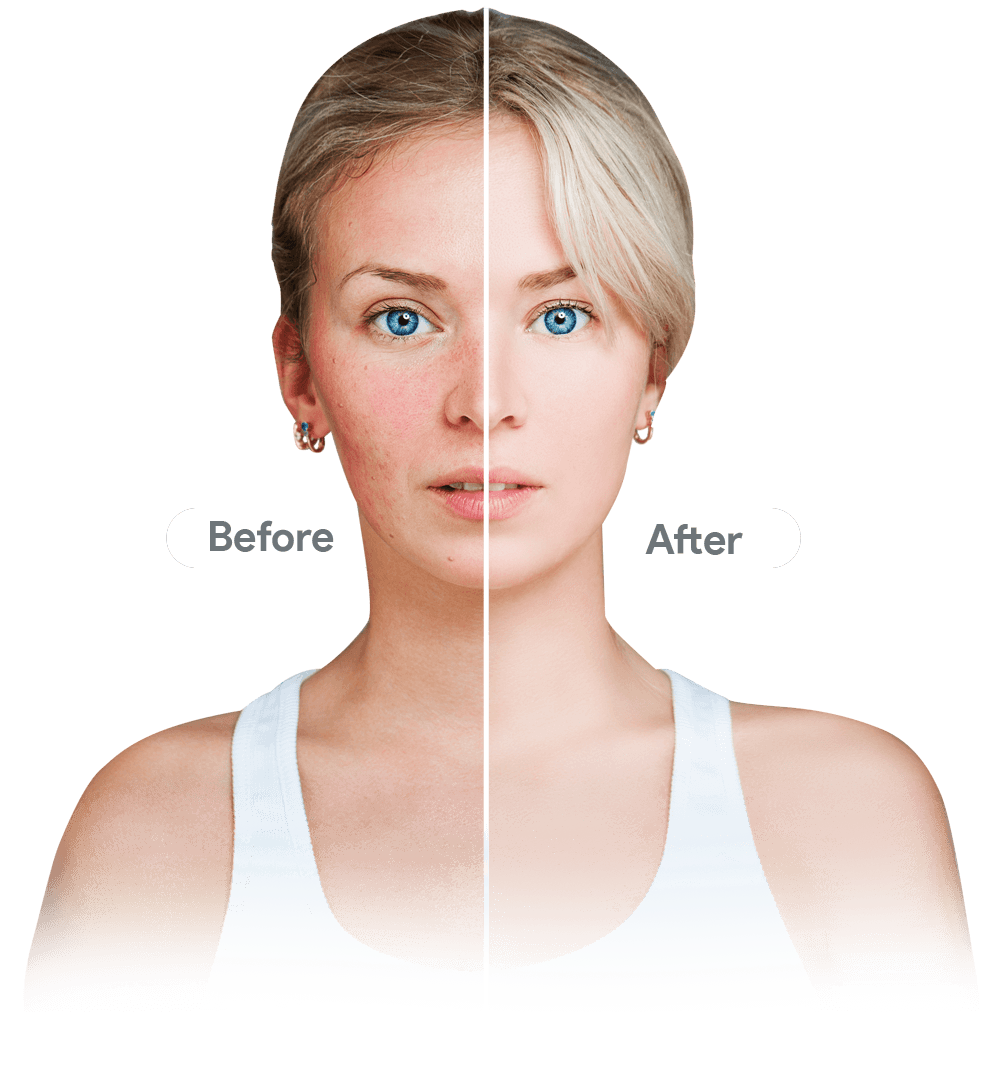
Your skin is utterly unique. So is your heredity, medical status, and lifestyle. When faced with a diagnosis of skin cancer, there is no single go-to solution since effectiveness depends on many factors. Patients of DSA Dermatology in Plano get the highest level of personalized attention with skin cancer treatments in the experienced care of Dr. Daniel Achtman and Dr. Carmine McConnell.
Q: Is skin cancer serious?
A: Skin cancer, especially in its early stages, is easy to ignore. A spot may look like other moles, warts, or complexion imperfections that you have lived with for years. It probably doesn’t hurt, and it may not appear to be growing. Yet cancerous lesions are insidious. Even though they appear small on the surface, mutated DNA could be causing cells to multiply rapidly, invading deeper skin layers and tissues.
Basal cell carcinomas rarely metastasize (spread to other organs) or become life-threatening. Without treatment, however, surface lesions begin to erode healthy skin, and may chronically ooze or bleed. As the deeper tumor enlarges, it distorts facial features or body contours.
Waiting to seek treatment simply means:
- Living with disfigurement longer.
- The discomfort and expense of extensive reconstructive surgery.
- A poorer cosmetic outcome.
Squamous cell carcinomas tend to grow a bit faster and may be sensitive or painful to the touch. This type of skin cancer can spread to lymph nodes (particularly in the neck) and organs in other areas of the body. Anyone with a compromised immune system is at a higher risk.
Melanomas are, of course, the most critical type of skin cancer. Melanoma has great potential to turn metastatic, spreading to the:
- Brain
- Liver
- Lungs
- Lymph nodes
- Tissues beneath skin
More than 96,000 people in the United States will be diagnosed with melanoma this year. Over 7,000 people will die from it.
Q: Why is individualized treatment so important?
A: At DSA Dermatology, the goal of every skin cancer treatment is three-fold. First, to eradicate cancerous cells as completely as can be done, reducing risk of recurrence. Second, we want to accomplish that with the best possible aesthetic outcome. Third, we strive for minimal risk of side effects or health implications.
To determine the most appropriate treatment plan, our doctors carefully evaluate several factors, directly correlating to the above priories. We analyze what type of skin cancer you have, where on the body it is located, and to what stage it has progressed. We consider whether your health is otherwise robust, if you are managing a medical condition, what medications you take for it, and your age. Your pain tolerance, job (and thus allowance for downtime), lifestyle habits, and hobbies go into the equation. We look at the overall condition of your skin, your skin tone, and propensity to scarring.
With an overview of these important facets, the team designs a treatment strategy that is specifically tailored to deliver the best results.
Q: Which dermatologists in Plano provide a range of skin cancer treatments?
 A: DSA Dermatology is equipped with the latest diagnostic and skin cancer treatment technologies, backed by the extensive experience of Dr. McConnell and Dr. Achtman. Your treatment begins with a physical examination and biopsy. Then, addressing the cancer may involve one or a combination of techniques such as:
A: DSA Dermatology is equipped with the latest diagnostic and skin cancer treatment technologies, backed by the extensive experience of Dr. McConnell and Dr. Achtman. Your treatment begins with a physical examination and biopsy. Then, addressing the cancer may involve one or a combination of techniques such as:
- PDT – Photodynamic therapy begins with application of drugs that cause cancer cells to become sensitive to light. Then, cancerous cells are destroyed with light energy.
- Cryotherapy – Liquid nitrogen is applied to a precancerous or small, early skin cancer. The chemical freezes, causing treated tissue to shed.
- C & E – Curettage and electrodesiccation involves use of a circular blade (a curette) and an electric needle to obliterate cancer cells.
- Excision – Cancerous tissue and a measure of surrounding healthy skin is removed with a scalpel.
- Mohs micrographic surgery – This precise technique is ideal for recurring skin cancers or those in difficult-to-treat areas. The technique has an extremely high cure rate and preserves maximum healthy skin. However, it is not appropriate for all types of skin cancer.
- Radiation therapy – Radiation may be necessary for a lesion that cannot be entirely removed with surgery.
- Chemotherapy – Chemical agents may be used topically to kill cancer cells in lesions residing only in uppermost layers of skin. Systemic chemo is used when cancer has spread to other parts of the body.
- Biologics – This leading-edge therapy stimulates your body’s own immune system to combat cancerous cells.
There are three important things to remember about skin cancer – every unusual spot should be evaluated by a qualified dermatologist; every skin cancer diagnosis should be taken seriously; every patient receives personalized skin cancer treatments at DSA Dermatology in Plano, TX. Call (972) 362-9567 for an appointment.
Why Choose DSA Dermatology?
At DSA Dermatology, we bring to you the best of not one but three leading dermatologists in Plano TX,



At DSA Dermatology, we bring to you the best of not one but three leading dermatologists in Plano TX, Dr. Daniel S. Achtman, Dr. Carmine G. McConnell and Dr. Jordan. Achtman.
Dr. Achtman is a board-certified Dermatologist with over three decades of experience. Having graduated from the medical school of McMaster University, he also studied at the UTSW Medical Center in Dallas, TX where he also served as Chief Resident in the Department of Dermatology. In addition to possessing extensive training and experience in cosmetic enhancement techniques, Dr. Achtman is widely known as a leading expert in the diagnosis and treatment of various skin cancers. He is an active member of the American Society for Dermatologic Surgery. Dr. Achtman goes the extra mile to understand your medical concerns and to ensure that he helps you meet your unique aesthetic goals.
Dr. Carmine G. McConnell is a board-certified physician in Plano TX. Having been trained at McMaster University, Canada, she went on to earn her board certification in Texas. Having served as Chief of Staff of her department at Plano Medical Center, she has over two decades of experience in practicing medicine in her practice and while assisting Dr. Achtman in the practice of dermatology. In addition to her extensive postgraduate training in laser therapy and aesthetic surgery, among other procedures, she possesses vast experience in both cosmetic dermatological techniques and family medicine. As a conscientious and caring physician, Dr. McConnell provides her patients with customized non-surgical treatments to help address health and aesthetic concerns related to the skin. She is also keen on helping patients understand their skin and how it can be cared for and protected.
Dr. Jordan Achtman is a board-certified dermatologist in DSA Dermatology at Plano, TX. Dr. J. Achtman graduated from the University of Pennsylvania in Philadelphia and completed his residency in dermatology at UT Southwestern. His expertise spans general, surgical, and cosmetic dermatology. Dr. J. Achtman also has various special interests including chronic itch, infectious diseases of the skin, and the relationship between mental health and skin health. He is also very keen on helping patients form healthy skincare regimens and habits. In the hands of Dr. J. Achtman, you can be assured of innovative and cutting edge solutions for all your skin concerns.


